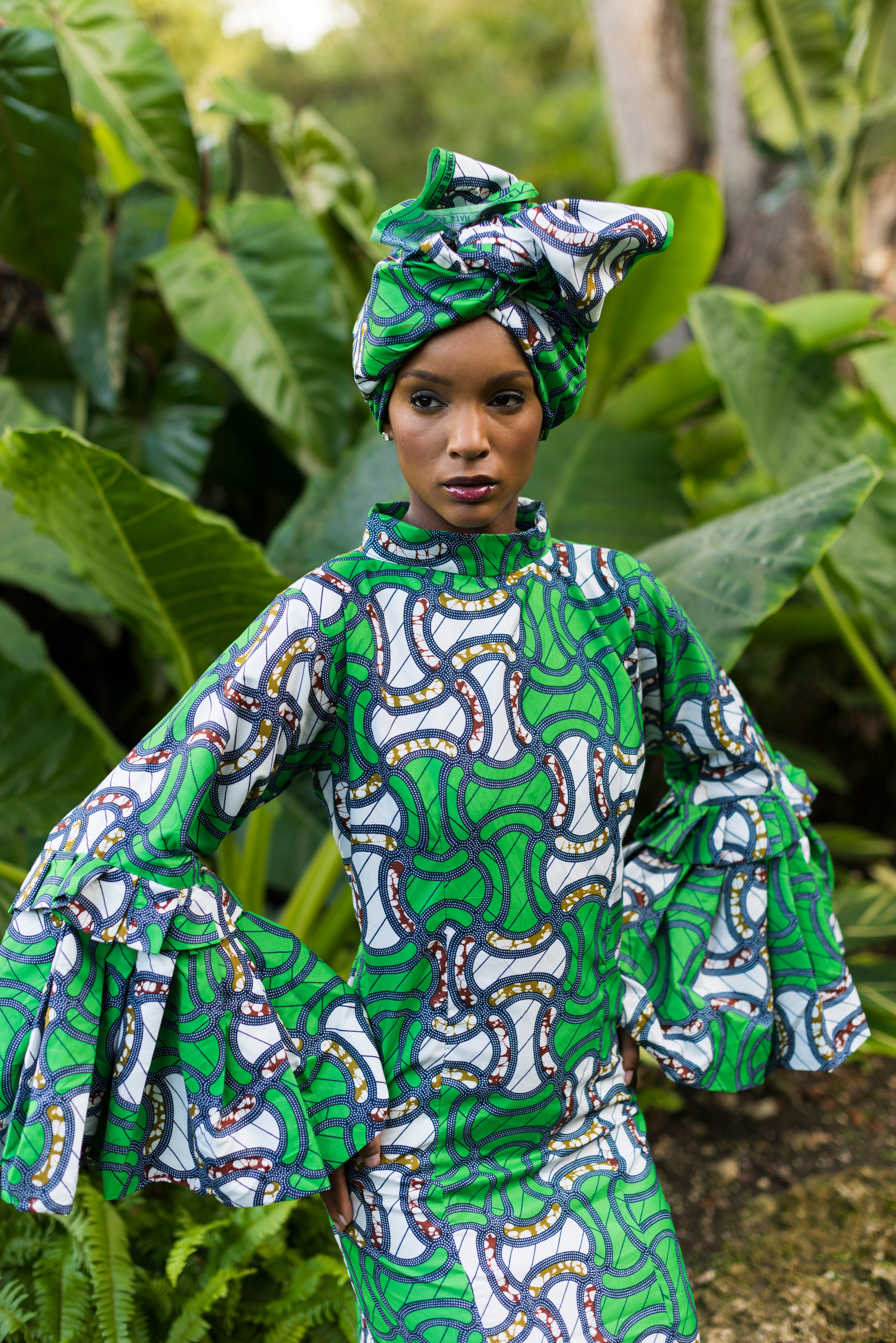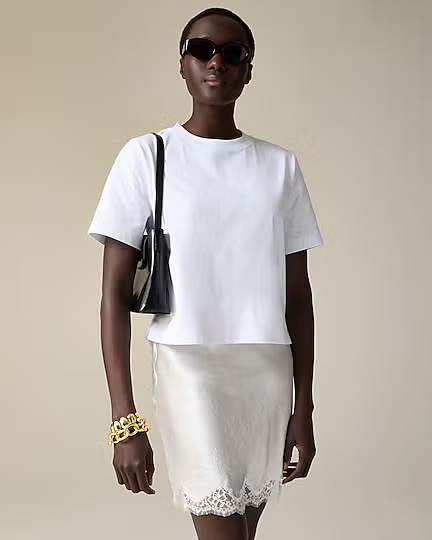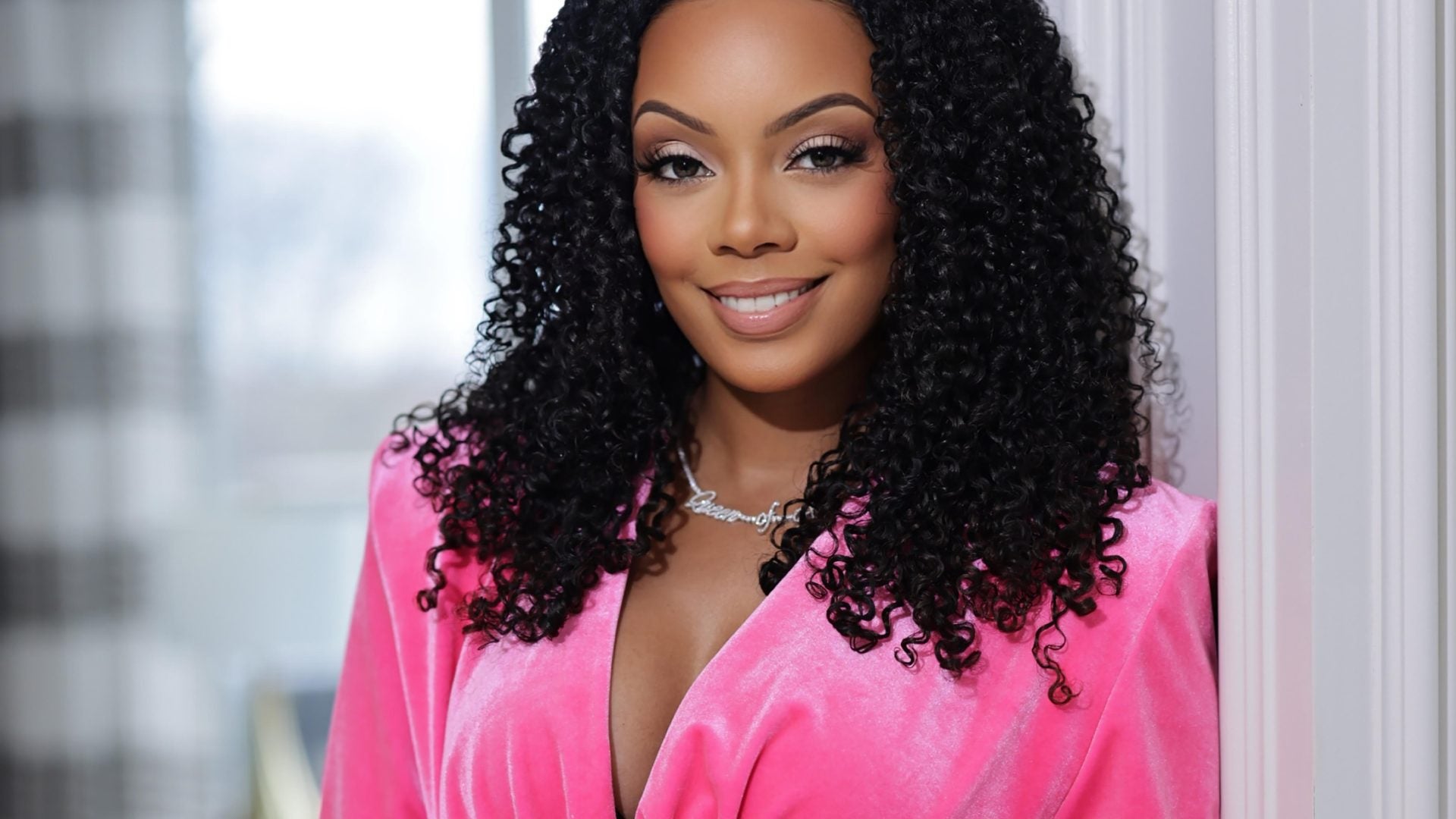
The Black Panther trailer is a vibrant, cinematic time machine that transports me back to my childhood’s wildest Afrofuturistic dreams. The scene is euphoric: gunmetal ships zoom over vast green landscapes and rushing waterfalls tumble down steep mountains; a rainbow of Wakandans smile and sway in robes of yellow, pink, scarlet and blue. They swing their hips to a song I cannot audibly hear but rings fiercely through my soul: a song of beauty, expression and blackness.
For me, these brief stylish snippets recall my own childhood memories of flashy parties, glamorous adults and elders. Growing up, I loved watching the women of my family prepare themselves for the Ghanaian functions we attended most weekends. We lived in Brooklyn, in an abundant West African community that also bloomed throughout Harlem and the Bronx. Partying was never an issue for my parents, although for Ghanaians, everything becomes a celebration: weddings and funerals are equally dance-worthy.
My mother would dress in elaborate African prints that vibrated with the elegance of ancient storytellers: deep reds, blues, greens and golds were woven into animal silhouettes, leaves, feathers and Adinkra symbols, like cryptic messages of protection and prestige. The bottom piece of her outfit—always a straight fit with a wrap-around skirt—rested obediently under her blouse: a Bardot cut with winged shoulders that gave the impression she’d take flight at any moment. I’d wonder to myself, was she dressing up to dance or to save the world?
Yet, my mother’s fashion was only a prelude of what was to come when I stepped foot inside the mirror-lined walls of Afrika House, the event hall where we attended parties. A lively fashion show awaited me, filled with Ghanaian women of all shapes, sizes and ages decked out in exuberant lace, fanciful prints, eccentric heels and sculpturesque headwraps and hairstyles. They seemed ethereal, powerful, traditional and futuristic all at once: remembering their homeland by expressing themselves in a new, complex country that had yet to understand the gravity of their adornments.
Back then my child self didn’t “get it.” I found my own African outfits stiff and uncomfortable, secretly loathing my mother for forcing me into them. The sleeves were puffy and the fabric was too rigid. I worried I’d tear it in two each time I used the bathroom. My mother’s outfit was far more graceful: her smooth, bare shoulders looked kissed by moonlight and while her caramel-coated leg peeked out of the slit in her skirt. I was excited for this kind of Ghanaian fashion: the grown, glamorous style I would only be able to touch in the future.
Now, as a grown woman, I fuse Ghanaian fashion into my own interpretation of Black style and so do many other Black millennials. We believe in paying homage to the land we’ve come from and the history and passion it embodies. We wear these physical symbols as an expression of our self-love, solidarity, activism and awareness; our decisions are layered with political, historical and fantastical nuance. Cultural pride is empowering, righteous and stylistic, especially when White supremacy degrades blackness and marginalized people of color. By wearing our history, we rewrite our reality.
Afrocentric style is our way of expressing pride, self-empowerment and embodying traditional and truly extraordinary African elements. Similarly, Afrofuturism inspires us to imagine distant or alternative worlds and identities where we possess magical, supernatural and super technological powers. The conversation between these two phenomenon is electric and ever flowing, like an endless novel where our past, present and future are aligned.
This is why the annual Afropunk Festival is an important landmark for Black fashion, and why we show out in our fanciest, coolest, most imaginative threads. It’s why movies like Get Out, singers like Janelle Monáe and soon, Black Panther, mean so much: because we see our culture, aesthetics, and dreams and stories represented as we experience them.
The heroes and heroines of the Black Panther movie, brimming in high-neck chokers, haloed hats, sleek patterned suits lined with metal accents, decorative scars and stunning hairstyles, transform classic statements of quintessential African style into symbols of invincibility and marvel, articulating Afrofuturism through African aesthetics.







Okoye’s (Danai Gurira) scarlet suit is both regal and resplendent, equipped with gold accents that distinguish her as a formidable leader. Shuri’s (Letitia Wright) face is dotted with white paint, reminiscent of West African traditional adornments. Nakia (Lupita Nyong’o) is seen throughout the trailers in a variety of patterned gowns and silver studded suits, and Ramonda, personified by Angela Bassett, glows in silver locs and crowns that reach toward the heavens.
How could I show up to Black Panther, ticket in tow…underdressed? My girlfriends and I are more than inspired to dress up for such a cultural moment. We are ready to watch this movie while feeling, and looking, our best selves. By dressing up, we’re participating in the Black excellence of the film, merging the worlds between fact and fiction.
And we are not the only ones opting to show up and show out. Black Twitter has discussed dressing up for Black Panther since trailers began airing last year. Rightfully so—we haven’t had such a huge film celebrating African pride and fashion since Coming to America. Here’s hoping theaters across America will be filled with Black kings, queens and superhumans. Perhaps Wakanda isn’t as far away as we think?






